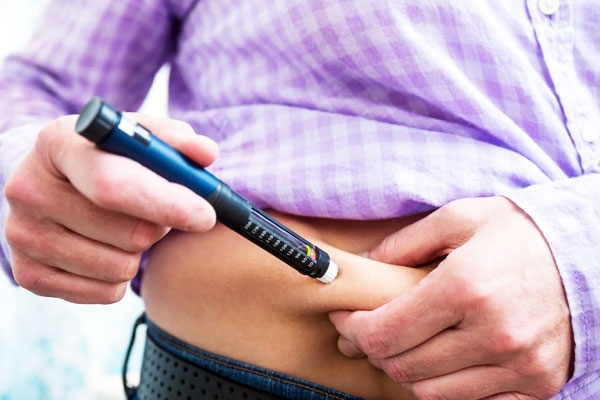
(Image source from: Canva.com)
Insulin needs can differ significantly among individuals. Therefore, if you find your blood sugar levels remain elevated even after administering insulin, it’s important to focus on the dosage rather than just the act of injecting it. Simply putting insulin into your body is insufficient; ensuring that the dosage aligns with your personal requirements is vital. A dosage that is too low or one that hasn’t been updated as needed can lead to persistent high blood sugar. Additionally, other factors may influence the effectiveness of insulin. One widespread issue is improper injection technique. Many individuals do not know the correct method for injecting insulin. Frequently injecting at the same location can lead to bumps under the skin known as lipohypertrophy, which can disrupt insulin absorption. To mitigate this issue, patients should practice rotating their injection sites.
The best locations for insulin injections encompass the abdomen—while steering clear of a 6 to 8 cm radius around the belly button—along with the upper arms, thighs, and buttocks, ideally where there is a sufficient fat layer. It is essential to deliver these injections into the subcutaneous area rather than the muscle. The length of the needle is another crucial factor. If the needle exceeds 4 mm and is not utilized correctly, it could inadvertently inject insulin directly into the muscle, impacting its absorption. Moreover, after inserting the needle, waiting at least 5 seconds before taking it out is important to ensure the entire dose is administered, as removing it too swiftly may cause some insulin to leak out, diminishing its effectiveness.
Proper storage of insulin is critical as well. It should be kept refrigerated. Experts note that a frequent error among patients is removing insulin before meals and leaving it at room temperature for extended periods, sometimes even 1 to 1.5 hours. Repeated exposure to warmer temperatures can diminish insulin potency. Some may also be unknowingly using expired insulin or improperly stored insulin that was not adequately refrigerated either at home or where it was purchased, which can disrupt the cold chain. Additionally, it is important to recognize that relying solely on insulin is insufficient. Dr. Arora emphasized the necessity for comprehensive diabetes management, which should encompass a blend of medication, diet, exercise, and lifestyle adjustments. Continually consuming excessive carbohydrates or processed foods may undermine the effectiveness of insulin. Furthermore, factors like emotional stress, inadequate sleep, and a sedentary lifestyle can also lead to increased blood sugar levels.







